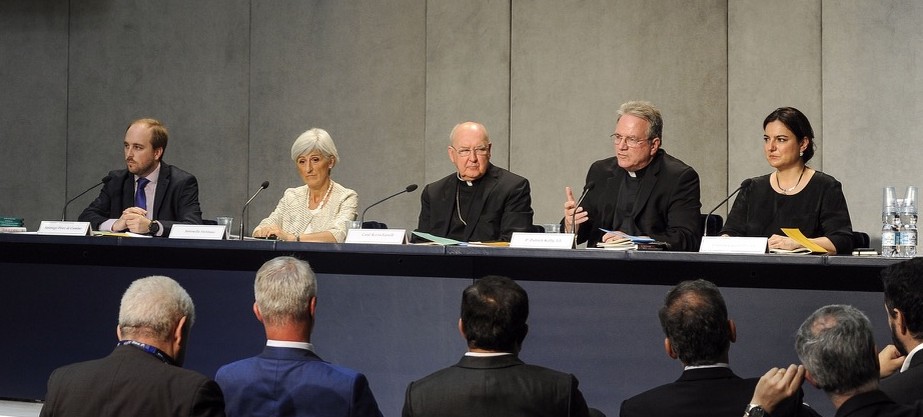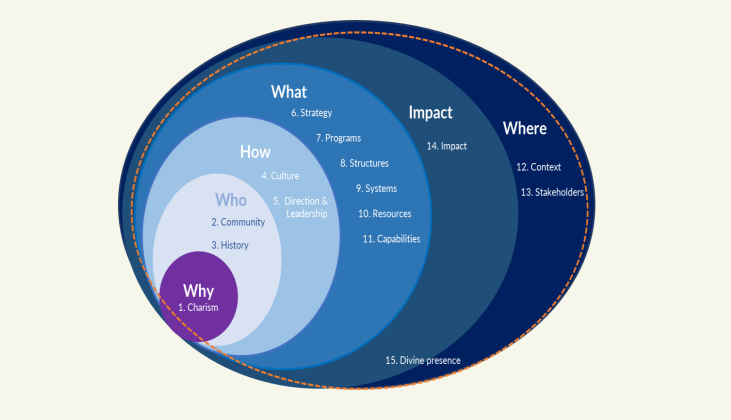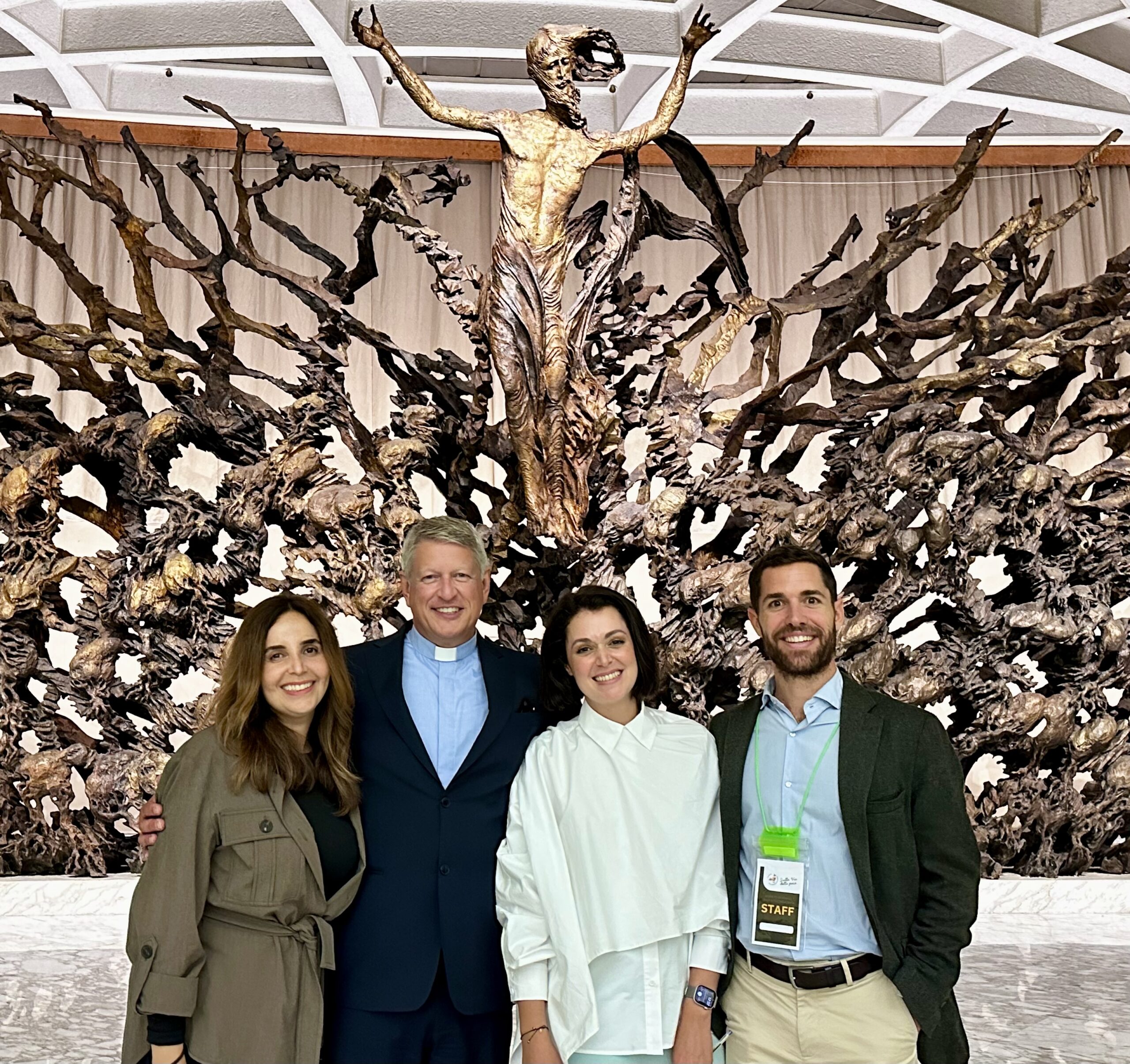When I was growing up I always enjoyed playing sports. I played because it was fun, as studies show most young people do. I wasn’t thinking necessarily about how it would help me to grow as a person. But, in fact, in many ways it did. This is in large part because of the influence of coaches who were sensitive to sports’ broader values and how they could be related to the growth of young people.

Today many young people have their first experiences of being part of a community outside of the home while playing on a sports team. They make friends, sometimes with children from very different backgrounds from their own. They have face-to-face interactions with other young people, which is increasingly rare in the digital age. And they need to learn how to navigate challenges and stressful situations together and to deal with conflict.
With good coaching they can learn that every person, from the equipment manager to the leading scorer, is equally important and is to be treated with respect; that if they are going to succeed at what they are doing, they need to do so together. In the process they will also learn how to develop their own talents, but in such a way that they work together with the talents and personalities of other players in pursuit of a common goal. My mentor psychologist Mihaly Csikszentmihalyi refers to this as differentiation and integration. When these are both happening at the same time, teams and other social groups, such as families, institutions and societies experience a forward movement and growth.
Coaches who approach their sport informed by spiritual values describe these dynamics within a spiritual framework. U.S. Catholic high school football coach Bob Ladouceur guided his De La Salle (Concord, CA) team to twelve consecutive undefeated seasons from 1992–2004. Yet Coach Ladouceur, a theology teacher, never talked much about winning. Rather, he spoke a good deal about the love his players and coaches have for one another. As he put it:
We try to make our football team a safe place to be. Safe to be our self. There is nowhere to hide on a football field. Teammates know each other, coaches know the players, and the players know the coaches. All attempts at not being yourself fail miserably. The key is to be the best self you were created to be.
In Csikszentmihalyi’s terms, he is describing differentiation. Being the best self you were created to be, not hiding. But the players do that in the context of a team where they are known, and where they are bringing the best of who they are (their talents, personality, etc.) to work together with their teammates in pursuit of a common goal. “What beats at the heart of our neighborhood is love,” the coach said.
We work hard at breaking down the walls that separate us… —and truly experience each other on a purely human level….Our founder, St. John Baptist De La Salle, says that the spirit of our Lasallian family is a spirit of faith and ardent zeal. And that the motivating force of zeal is love.

The best coaches at all levels are able to foster this kind of differentiation and integration. When Phil Jackson first joined the Chicago Bulls as an assistant coach, Michael Jordan was regularly winning NBA scoring championships. But the team could not advance in the playoffs, because other teams would simply double or triple team him. When Jackson took over as head coach, he asked Jordan to score less. He also implemented the triangle offense, where any of the five players could take the shot each time down the court. In this way, each player was involved in the game, in a way that made use of their unique skills. When the other team double teamed Jordan, the other players began to step up and make the shots. This was the turning point that led to the Bulls winning three consecutive NBA championships.
Like Ladouceur, Jackson was convinced there is a spiritual dimension to sports. He taught his players how to meditate, so they could be more fully in the present moment. And he fostered a bond or connection among the players that goes beyond basketball by giving them each books to read and holding team discussions about ethical issues. When a significant loss occurred in a player’s life, the team would support him in prayer. Inspired by St. Paul’s words about the centrality of love and the Buddhist teaching on compassion, Jackson thought that “love is the force that ignites the spirit and binds teams together.” (Sacred Hoops, 52)
Players who experience this kind of human formation in sports can take these lessons with them into the rest of their lives. At work, they will know how to draw out the talents of the people they are leading, but in such a way that they complement and collaborate with others’ gifts in pursuit of the shared goals of the organization. This kind of human formation is also a wonderful preparation for leadership in civil societies. Pope Francis has shown with the image of the polyhedron a vision of the unity of the human family that honors the distinctiveness of each person and culture. As he put it: “How much our human family needs to learn to live together in harmony and peace, without all of us having to be the same!” (Fratelli Tutti par. 100) Finally, for Christians such a human formation can introduce them in an existential way to the profound truth that just as the human body is one and yet has many members, so too it is with the body of Christ. As St. Paul puts it: “There are varieties of gifts, but the same Spirit. … [And] to each person is given the manifestation of the Spirit for the common good.” (1 Cor. 12:4,7)




